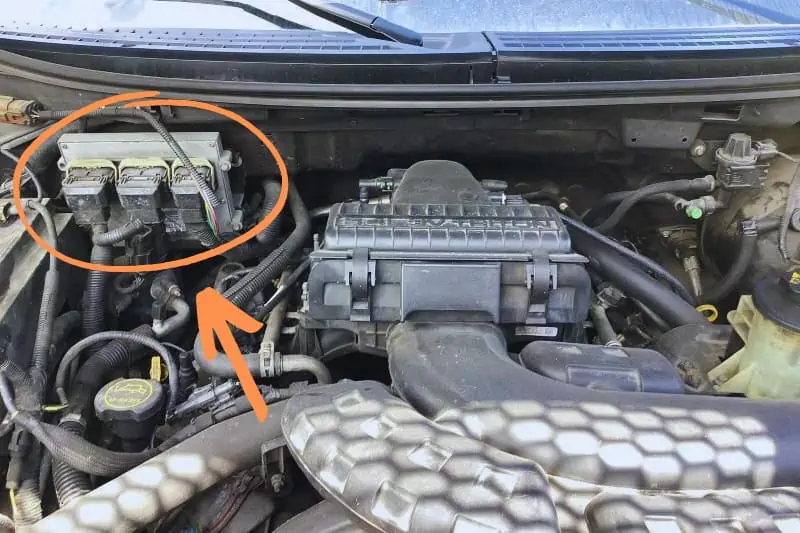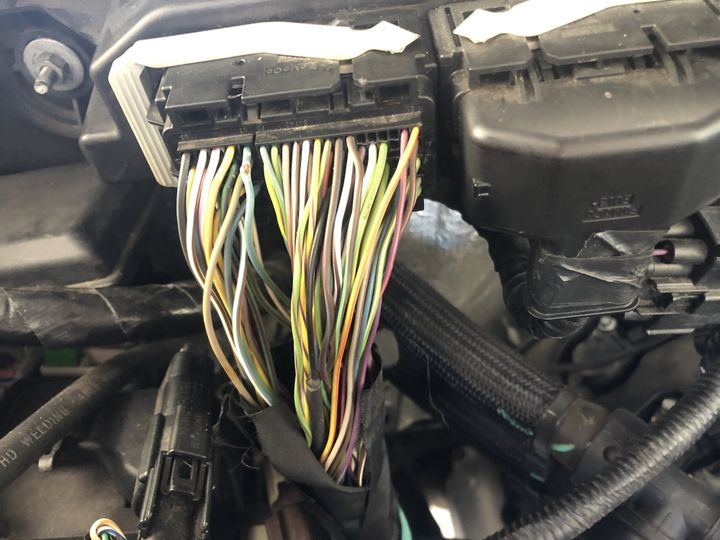


The Ford F-150 is a popular and widely-used pickup truck model known for its durability and performance. However, like any complex vehicle system, it can experience issues with various components, including the Powertrain Control Module (PCM). The PCM is a crucial electronic component that manages and regulates the engine, transmission, and other powertrain systems. When the PCM fails or malfunctions, it can lead to a range of symptoms that can significantly impact the vehicle's performance and drivability.

In this article, I'll share my firsthand experiences and insights into the common causes, symptoms, diagnostic procedures, repair methods, and preventive measures related to Ford F-150 PCM failure. Buckle up, and let's dive into the world of automotive diagnostics!
Over the years, I've encountered several recurring culprits that can lead to PCM failure in the Ford F-150. Here are the most common causes:
| Cause | Description |
|---|---|
| Failed Ignition Coils | Faulty ignition coils can short-circuit and send excessive voltage to the PCM, damaging its internal circuitry. |
| Electrical Issues | Problems with the vehicle's electrical system, such as faulty wiring, poor grounding, or voltage spikes, can lead to PCM failure. |
| Physical Damage | The PCM can sustain physical damage due to impact, moisture, or other environmental factors, leading to its malfunction. |
| Software/Firmware Issues | Outdated or corrupted software/firmware in the PCM can cause it to malfunction or become incompatible with other vehicle systems. |
As a mechanic, I've learned that diagnosing PCM failure requires a systematic approach. The first step is to pay attention to the symptoms your Ford F-150 is exhibiting. Common signs of PCM failure include:
Check Engine Light illuminated
Engine stalling, hesitation, or misfiring
Difficulty starting the vehicle
Poor fuel efficiency
Transmission shifting issues
Inability to connect an OBD2 scan tool
PCM-related error codes (e.g., P0606, P0603, P0113, U0100)
Once these symptoms are observed, the next step is to connect an OBD2 scan tool to the vehicle's diagnostic port. This tool can retrieve diagnostic trouble codes (DTCs) that can provide valuable insights into the nature of the problem.
The diagnostic steps typically involve:
Scanning for DTCs
Checking for loose or damaged wiring connections to the PCM
Inspecting the PCM for physical damage or signs of moisture intrusion
Performing voltage and ground checks on the PCM circuits
If ignition coil failure is suspected, checking for related DTCs (e.g., P0351-P0358) and inspecting the coils
Once the cause of the PCM failure has been identified, it's time to implement the appropriate repair procedures:
| Repair Procedure | Description |
|---|---|
| Ignition Coil Replacement | If the PCM failure is caused by faulty ignition coils, replace all coils simultaneously with the PCM repair or replacement. It is recommended to use OEM (Original Equipment Manufacturer) parts. |
| PCM Repair or Replacement | Depending on the extent of the damage, the PCM may need to be repaired or replaced entirely. Reputable repair facilities can diagnose and repair the PCM, while a replacement PCM may require programming and key coding. |
| Wiring and Electrical System Repairs | If electrical issues are causing PCM failure, repair or replace any damaged wiring, grounds, or other electrical components as needed. |
| Software/Firmware Updates | In some cases, updating the PCM's software or firmware may resolve issues caused by outdated or corrupted code. |
To minimize the risk of PCM failure in your Ford F-150, I highly recommend following these preventive measures:
Regular Maintenance: Follow the recommended maintenance schedule for your Ford F-150, including regular inspections and replacements of ignition system components, electrical connections, and the PCM itself if necessary.
Proper Driving Habits: Avoid excessive idling, aggressive driving, and overloading the vehicle, as these can strain the PCM and other components.
Electrical System Checks: Regularly inspect the vehicle's electrical system, including battery connections, alternator output, and grounding points, to prevent voltage issues that can damage the PCM.
Software Updates: Keep the PCM's software or firmware up-to-date to ensure compatibility with other vehicle systems and address any known issues.
The cost of repairing or replacing a Ford F-150 PCM can vary depending on several factors:
PCM Repair Cost: Typically ranges from $300 to $600, depending on the extent of the damage and the repair facility.
PCM Replacement Cost: A new PCM can cost between $800 and $1,200, plus programming and key coding fees if required.
Ignition Coil Replacement Cost: Replacing all six ignition coils can cost around $300 to $500, including parts and labor.
Labor Costs: Diagnostic and repair labor costs can vary depending on the repair facility and the complexity of the issue.
It's essential to address PCM failure promptly, as ignoring the issue can lead to further damage and more expensive repairs down the line. Consulting with a reputable repair facility and following preventive maintenance guidelines can help minimize the risk of PCM failure and associated costs.
PCM failure in the Ford F-150 can be a frustrating and potentially expensive issue, but with the right knowledge and preventive measures, it can be mitigated. As a mechanic, I've witnessed firsthand the importance of regular maintenance, proper driving habits, and addressing issues promptly.

By understanding the common causes, symptoms, and diagnostic procedures, you can be better prepared to tackle PCM failure should it occur. Remember, a well-maintained vehicle and a proactive approach can go a long way in ensuring your Ford F-150 remains a reliable and trustworthy companion on the road.
If you ever encounter PCM-related issues with your F-150, don't hesitate to seek professional assistance. A skilled mechanic can accurately diagnose the problem and provide the appropriate repair or replacement solutions, ensuring your truck remains in top condition for years to come.
Common symptoms include the check engine light illuminating, engine stalling or misfiring, difficulty starting the vehicle, poor fuel efficiency, transmission shifting issues, and the inability to connect an OBD2 scan tool.
Yes, faulty ignition coils can short-circuit and send excessive voltage to the PCM, damaging its internal circuitry and leading to failure.
Mechanics follow a systematic approach, including scanning for diagnostic trouble codes, checking wiring connections, inspecting the PCM for damage, performing voltage and ground checks, and testing ignition coils if necessary.
Depending on the cause, repair procedures may include replacing ignition coils, repairing or replacing the PCM itself, fixing wiring and electrical issues, or updating the PCM's software/firmware.
Yes, following regular maintenance schedules, practicing proper driving habits, checking the electrical system, and keeping the PCM's software up-to-date can help minimize the risk of failure.
The cost can vary, but typically ranges from $300 to $600 for PCM repair, $800 to $1,200 for replacement (plus programming fees), and $300 to $500 for ignition coil replacement.
No, it is not recommended to continue driving with a failed PCM, as it can lead to further damage and more expensive repairs down the line. Address the issue promptly.
Yes, since the PCM manages various systems, including the transmission, a failed PCM can lead to transmission shifting problems in a Ford F-150.
Consult with a reputable repair facility or dealership, as they can check for available software/firmware updates and perform the necessary updates to ensure compatibility and address known issues.
Yes, aggressive driving habits, such as excessive idling or overloading the vehicle, can strain the PCM and other components, increasing the risk of failure over time.

Sarah isn't your average gearhead. With a double major in Mechanical Engineering and Automotive Technology, she dived straight into the world of car repair. After 15 years of turning wrenches at dealerships and independent shops, Sarah joined MICDOT to share her expertise and passion for making cars run like new. Her in-depth knowledge and knack for explaining complex issues in simple terms make her a valuable asset to our team.











